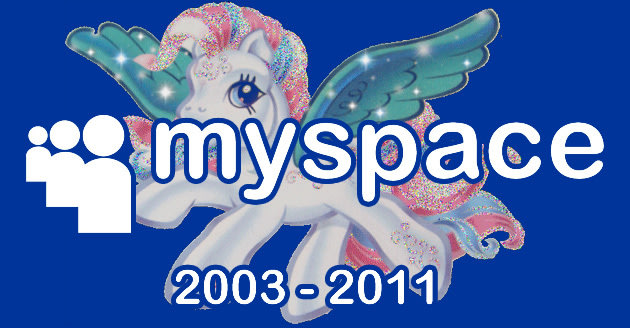
The once-great social network made a few critical errors that sent people running to Facebook
So what happened? Where did Myspace go wrong, and why have countless social networkers flocked to its competitor, Facebook? No single factor triggered the site's downfall, but there were a few key choices that made Facebook seem like a much more appealing alternative.
A solid foundation
Facebook debuted as a social network for college students. More specifically, a social network for Harvard students. From there, it expanded to other institutions of higher learning, then high schools, and eventually was made available to the general public.
Facebook debuted as a social network for college students. More specifically, a social network for Harvard students. From there, it expanded to other institutions of higher learning, then high schools, and eventually was made available to the general public.
Prior to opening its doors to the common man, you needed a college-based email address to get an account. This meant that every account was assigned to a living, breathing person. By the time the rest of us were allowed in, there were already millions of legitimate users to interact with. It made the entire network feel real, and important.
Myspace, on the other hand, was absolute mayhem from the very start. People started multiple accounts, joke accounts, and accounts for their pets on day 1. There wasn't a solid base of responsible users to help the network grow. Checking your friend requests on Myspace meant wading through a half dozen fake bot accounts and internet marketers, and then, maybe, you'd find a request from someone you actually knew.
When you got a friend request on Facebook, chances were astronomically greater that a real person was behind it. In recent months, less-than-legitimate accounts have become a bit more prevalent on Facebook, but the system in place to deal with and remove fake accounts means that they are barely noticeable, and rarely affect your experience.
Freedom
This might sound paradoxical, but allowing users to control nearly every aspect of their Myspace profile was a decision that ultimately sucked all of the enjoyment out of the experience. If you never had a Myspace account, let me elaborate: after creating your main profile page, you could do things like provide lists of interests and add friends, but it didn't stop there.
This might sound paradoxical, but allowing users to control nearly every aspect of their Myspace profile was a decision that ultimately sucked all of the enjoyment out of the experience. If you never had a Myspace account, let me elaborate: after creating your main profile page, you could do things like provide lists of interests and add friends, but it didn't stop there.
Myspace allowed you to customize your profile with colors, graphics, fonts, and any number of ridiculous alterations. Some were simple, and even improved on the functionality of the site itself, but the vast majority were disgusting, glitter-filled, bandwidth hogs.
And with many users (including yours truly) stuck somewhere between dial-up and broadband, these pages took an obscene amount of time to load. Entire sites sprung up whose sole purpose was to distribute Myspace profile templates. It was the Wild West.
By comparison, Facebook is like a prison. A controlled, well-regulated, totally enjoyable prison. Everything is clean and sterile, and nobody gets out of line. You never go to someone's Facebook profile and see a massive, glittery pony, or a leprechaun with a "Happy St. Pattys Day!" banner taking up half the page.
The truth is, your average internet users can't be trusted to design an aesthetically appealing homepage, and it took Myspace to make us all realize that.
There's no going back
In many ways, Myspace was like a teenage Facebook. It was rebellious, bold, and slightly foolish. It catered to people who wanted to play by their own rules, and it gained popularity among teens and young adults for that very reason. Unfortunately, we all grow older. And instead of maturing, cutting its hair, and turning the volume knob down a tad, Myspace fell asleep on the couch, and woke up in a Facebook world.
In many ways, Myspace was like a teenage Facebook. It was rebellious, bold, and slightly foolish. It catered to people who wanted to play by their own rules, and it gained popularity among teens and young adults for that very reason. Unfortunately, we all grow older. And instead of maturing, cutting its hair, and turning the volume knob down a tad, Myspace fell asleep on the couch, and woke up in a Facebook world.
But Facebook isn't without its faults; privacy concerns and other gaffes have come to light in recent months. And with Google+ on the horizon, it will be interesting to see which company can evolve the quickest, and offer us the best social networking experience.


